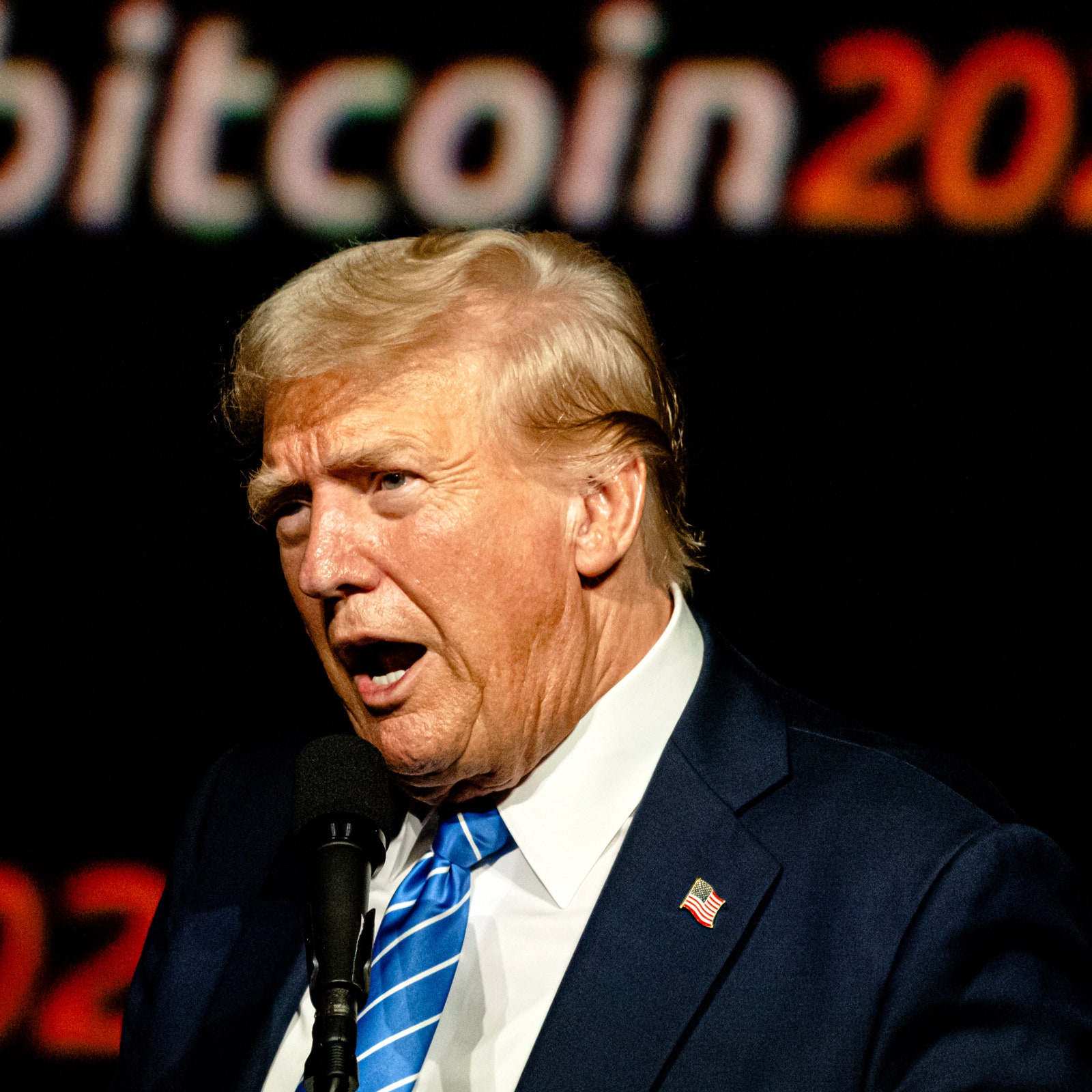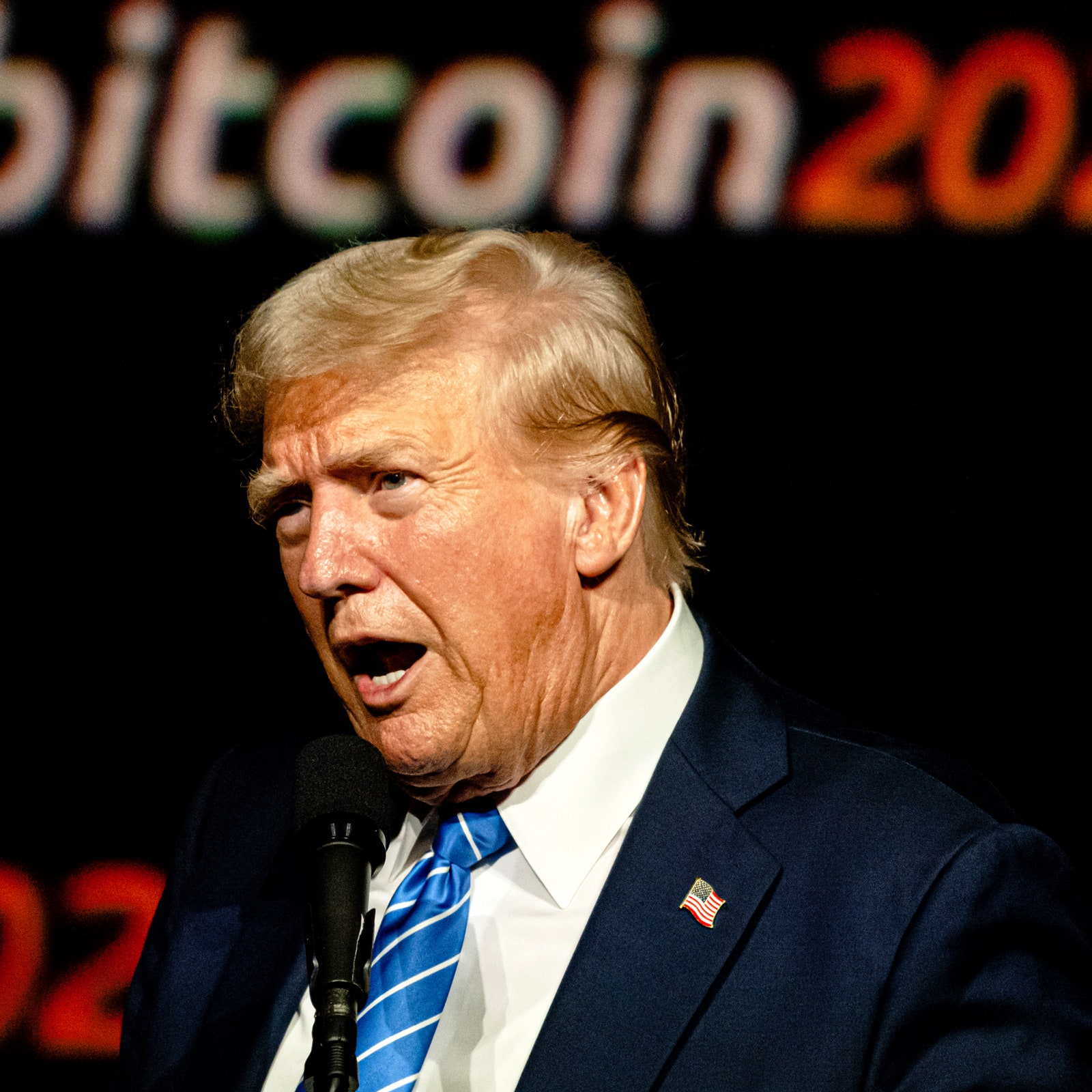
The Dawn of a New Crypto Era: How Trump’s Election May Reshape the Digital Currency Landscape
As Donald Trump vows to make the United States the “Crypto Capital of the Planet” at the upcoming 2024 Bitcoin Conference in Nashville, the cryptocurrency market finds itself on the precipice of a potential transformation. With Trump’s promises of reforming crypto regulations, supporting Bitcoin’s integration into the national financial framework, and opposing Central Bank Digital Currencies (CBDCs), the outlook for the U.S. crypto sector seems promising.
 Trump’s bold promises at the Bitcoin Conference may lead to significant shifts in the crypto landscape.
Trump’s bold promises at the Bitcoin Conference may lead to significant shifts in the crypto landscape.
Bitcoin Takes Center Stage
Since Trump’s electoral win, Bitcoin has not only remained resilient but has surged to unprecedented heights, reaching $76,956 as investors bet on a future filled with supportive policies for cryptocurrencies. The daily net inflow into the crypto market recently hit a staggering $1.38 billion, with BlackRock’s iShares Bitcoin Trust (IBIT) being a significant player, accounting for 81% of total inflow. This growth signals a shift in the financial ecosystem as traditional and decentralized finance increasingly intertwine.
Moreover, Trump’s campaign strategy embraced cryptocurrency by accepting donations in Bitcoin and launching World Liberty Financial, a new venture focused on digital asset trading. This ‘Trump trade’ philosophy reflects a burgeoning demand for Bitcoin exchange-traded funds (ETFs), indicative of a transformative shift in the U.S. financial landscape.
 The impressive rise of Bitcoin showcases the growing appeal of cryptocurrencies under a Trump-led administration.
The impressive rise of Bitcoin showcases the growing appeal of cryptocurrencies under a Trump-led administration.
Regulatory Clarity in Sight
A critical aspect of Trump’s planned reforms includes dismantling what he perceives as restrictive regulatory frameworks. The potential dismissal of SEC Chairman Gary Gensler, criticized for his enforcement-heavy approach, may open the door for a more accommodating regulatory environment. Industry experts, such as Christopher Perkins of CoinFund, suggest this election marks the dawn of a “crypto Congress”, with 261 pro-crypto candidates recently elected. Perkins emphasizes the promising outlook for regulatory clarity that does not impose overly prescriptive measures on the industry.
“Expect regulatory clarity, but not overly prescriptive regulation. The elections were wildly positive for the crypto industry.” - Christopher Perkins
Such changes may encourage innovation and growth within the U.S. crypto sector, potentially positioning the country as the world leader in decentralized finance.
A Stand Against CBDCs
Trump’s staunch opposition to CBDCs stems from concerns over individual freedom and financial privacy. His advocacy for the CBDC Anti-Surveillance State Act, which establishes stricter oversight on the Federal Reserve’s abilities to issue digital currencies, resonates with a growing skepticism about central bank interventions in the cryptocurrency market. This anti-CBDC sentiment could reshape global attitudes, as countries look to the U.S. for guidance amidst their own digital currency initiatives.
In Europe, for instance, discussions around the European Central Bank’s (ECB) planned digital euro may heat up due to Trump’s vocal opposition to CBDCs. Jonas Gross, Chairman of the Digital Euro Association, believes Trump’s influence might pressure EU regulators to reconsider their approach concerning CBDC implementations, potentially shifting the balance of regulatory discussions globally.
Competing on the Global Stage
While the U.S. seeks to bolster its regulatory framework, Europe has already established a robust path through initiatives like the Markets in Crypto-Assets Regulation (MiCAR) set to take effect soon. Joachim Schwerin from the European Commission emphasizes that Europe’s commitment reflects its emphasis on sustainable crypto growth. The allure of MiCAR has already attracted numerous U.S.-based firms aiming to secure licenses and tap into the European market.
However, under Trump’s leadership, a more crypto-friendly U.S. regulatory environment could pose a challenge to Europe’s regulatory roadmap, as nations like the United Arab Emirates and Switzerland also establish frameworks aimed at attracting innovation in the blockchain space.
Conclusion: A Crypto Resurgence Ahead
In summary, Donald Trump’s return to power signals a potential renewal for the cryptocurrency industry in the U.S. With his pro-Bitcoin initiatives, a likely regulatory overhaul, and a resistance to CBDCs, the U.S. could emerge as the leading hub in the digital finance revolution. The election results may have ignited a catalytic shift in which both political commitment and market dynamics could position America at the forefront of the global crypto landscape.
 As competition in the crypto space heats up, the U.S.’s moves could redefine global standards.
As competition in the crypto space heats up, the U.S.’s moves could redefine global standards.














